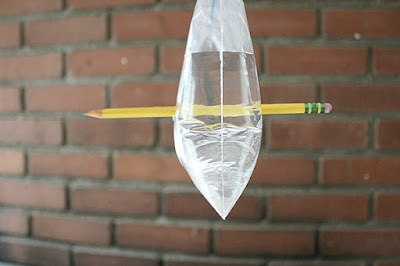So far, if we speak of science experiments, which is on our minds is about the complexity and the difficulty. In fact this is not true at all. A Science experiment does not have to be that complicated. We can carry out science a experiment that is simple and easy. Even, not only adults who can do it, children also can perform science experiments. So throw away our thinking about the difficulty and complexity of science experiments. Begin to think that it is easy and fun. But what the first step that must be considered to make your science experiments feel easy? Here you can read an easy science experiments more details.
The first step is to make your experiment feel easy is no other to choose a problem. Choose a experiment problem is an initial step in the research. Many people usually feel difficulty in determining the issues to be examined. Where does the problem come from? Which clearly are part of the problem must be a person needs to be resolved the answer. Researcher wants to conduct experiments because they want to get the answer of the problems being faced. These problems come from many directions. For example a child who diligently visits the library read an article about a problem concerning how to learn effectively. Encouraged by the desire to achieve effective learning outcomes, he tried and examines what has been described as the article, or a mother who faces a child that difficult to eat conduct experiment about what ways that can do to persuade children who are difficult to eat.
Two examples are presented to explain how a problem was obtained. The problem can be obtained from everyday life because encounter strange things or driven by a desire increase any work quality. Problems can also be obtained from reading the book, can also be obtained from other people's problems, but the best when it comes from you, driven by the need to obtain the answer. Thus, the experiment will do as well as possible because researchers deepen the problem.
Has stated that the research will go easier if researchers deepen the problem, the experiment can go well if the issue attract the attention of researchers. The research problem can be seen from the formula title. Besides attract, researchers should think of other problem. Interesting alone is not enough to guarantee the experiment can go well. Sometimes researchers are eager to seek answers to a problem but factors do not allow its implementation.
In short sentence it can be argued here that the condition factors can sourced from researchers themselves or from outside. If summarized there is four things that must be met for the election of the problem or the title of the experiments.
Research must be in accordance with the interest of researchers. The interest factor does not seem formal. But, this factor can also be linked to the formal namely expertise, if the problems incompatible with the interest of researchers, Researchers will not be passionate in the implementation of research. Can be implementation of the results will not be good, can even be stopped in the street. Conversely, if the researcher is interested, then he will do it diligently and not easily discouraged when faced with difficulties.
Further experiments must be supported by other supporting factors. Among them is a factor that comes from outside researchers, i.e. the availability of data, so that the research question can be answered and the second is the existence of a permit from the authorities. Lots of interesting things to study but researchers sometimes limited by regulations may be a matter of politics, security, public order, and so on.
However, the most important is the beneficial results of the experiment. What for it's done if the activity does not produce anything useful? So the researchers should be prepared with a question:" whether the benefits of your research?”
Thus Steps that can be taken to facilitate your research, hopefully you get the easy science experiments.
